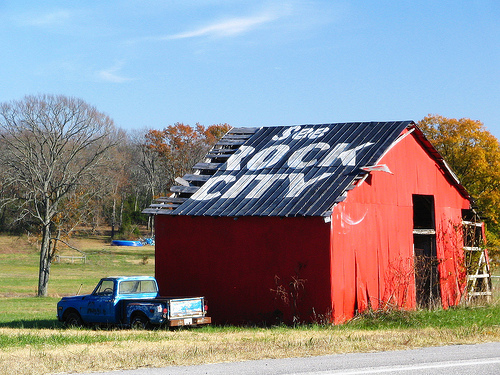Don’t Get Above Your Raisin’
Most deprived subcultures resent those among them who strive too hard to escape--much less succeed.
A wonderful byplay is going on between Rod Dreher and Ta-Nehisi Coates regarding the latter’s extended visit to Paris.
Coates comments in particular on this bit from Dreher:
I appreciate the moral tension, bordering on anguish, in the way TNC writes about Paris. I suspect this is why he could write earlier this year about walking across the Luxembourg Gardens alone and feeling anxious about it, while I made the same walk and felt unambiguous joy. It’s not that I was born wealthy, or from people who traveled (except my great-great aunts, who died when I was small). I did not, and my sister, to her dying day, resented me for becoming the sort of person who liked to go to France. TNC and I grew up in different circumstances, it hardly needs saying, but neither one of us could have been expected to turn into people who go to France with their families and write about it.
[…]
But my response to the privilege that Paris represents comes from a deeper place than the material and social circumstances of my raising. I found out after my sister’s death that she held my writing success against me to a certain degree, because it didn’t make sense to her that anybody could make real money writing. She thought, as TNC does, that “the game is rigged.”
I can’t account for Ruthie’s views, which she never shared with me (but did share with others), but I believe it comes from her instinctive resentment of anything to do with wealth and privilege. Wanting to go to Paris is something only rich people do, in her worldview. That I wanted this, and repeatedly satisfied that desire, offended her, I learned after her death. It did not matter that I always stayed in modest hotels (sometimes very modest hotels), or traveled on cut-rate fares, sometimes in the dead of winter, to make it affordable. The desire itself was a moral offense, a betrayal of my class.
Coates responds:
For many years I have generally doubted the import of the “acting white” thesis, mostly because I never experienced or saw anything like it. I was a pretty weird kid in my Baltimore days. I played D&D, collected comics, and read a lot of obscure books. My family ate strange foods, and clearly had ambitions beyond the hood. I got called a lot of things. White wasn’t among them. But I’ve heard from enough black people who did have this happen to them to understand that it is real, and I suspect it is a sub-specimen of what Rod is talking about here–a kind of tribal border-patrolling.
Quite so. Indeed, there seems to be an instinct in most deprived subcultures to resent those among them who strive too hard to escape—much less succeed.
Years ago, I pointed to this:
An old Russian joke tells the story of a peasant with one cow who hates his neighbor because he has two. A sorcerer offers to grant the envious farmer a single wish. “Kill one of my neighbor’s cows!” he demands.
In the Deep South, there’s an old saying among poor working class folks: “Don’t get above your raisin’.”
At its most benign, it’s simply a reminder of remembering your roots and not looking down on those with less success. But, quite often, it’s an admonition not to strive too hard to better yourself.
“Gettin’ above your raisin'” is a phrase I’ve heard all my life. The notion is you want to change social classes. You try to change social classes, there’s this feeling that you’re forsaking the family, you’re forsaking place, you’re forgetting where you came from…and here’s this real fear that if you leave, that you’ll become ashamed of where you came from. — Michael Birdwell, historian
Presumably, it’s a protective mechanism. While succeeding despite humble beginnings requires a lot of “luck” (in TNC’s estimation) or being “blessed” (in Dreher’s), it inevitably signals to the vast majority who don’t that they’ve failed. It’s not at all surprising that they’d resent that.







In Australia, they call this the tall poppy syndrome.
Seems to be universal.
I was actually going to post that Russian joke when I saw the teaser on the main page. I find that explains entirely too much about my neighbors.
A few years ago, PBS ran an amazing special entitled People Like Us: Social Class in America. There was one segment that followed a young woman raised in Appalachia that went on to a career in D.C. The segment showed her returning home for a visit. It was a tough, uncomfortable experience for everyone involved (the whole program is great).
It’s difficult for middle-class Americans to grasp the antipathy of many poorer families regarding improving one’s station. For the very poor, pride is one of the few values they can fully afford.
Hence, we have ‘right to work’ laws.
On the broader issue of “don’t get above yer raisin’ “… I can say that my sons had difficulties with this. As they were growing up, I took them all over this country and to Mexico and Spain where they did things that most people don’t even know are there to be done. Rappel into a 1400 ft pit? Swim for miles into a cave? Sit on the edge of an AZ canyon and listen to a mountain lion proclaim it’s supremacy? Go canyoneering in a 1000′ deep gash in the earth? Hell, look at a round castle a thousand years old? Sit where Roman Centurions sat 2000 yrs ago? Stand atop a mountain in the remains of a castle defended by Christians against the Muslim hordes?
I exposed my sons to a whole world of things that most of their classmates never knew existed. They came back to Bourbon MO and told tales of fantastical 400′ pits, standing atop 600′ waterfalls, and chivalry only read of in ancient books. I know they told their classmates of their adventures, and I know they were called, “Liar.” by some because a few of their classmates had not the imagination necessary to envision such things.
It is the world we live in. To broaden the horizons of ones children is to subject them to ridicule. I think my sons are better for it. I only wish I could have exposed them to more.
@OzarkHillbilly: You’re a good man, often strange, though not in this instant.
But what if you took your kids to all the same natural and historical wonders, but they attended a tony school, where all of the other kids summered at the best beachside resorts from here and abroad, spent Winters skiing at the best ski resorts, or vacationed in all of the large cities where there is great shopping?
They might still be odd, outsiders as well, at least outside the beltway.
P.S. In roughly your neck of the woods, I’ve taken my kids to the Johnson Shut-Ins, and where U.S. Grant was commissioned Brigadier General. You have some interesting natural and historical areas near you as well.
Another jokes along this line are the various iterations of:
A guy gets to heaven and is getting taken around. He passes pots of boiling oil full of sinners, surrounded by devils with pitchforks. Everytime one of the sinners tries to escape their torture, one of the devils would poke them with a pitchfork to push them back in. Eventually he passes a pot with a bunch of people in it, but no devils around it. “How come now one is guarding that pot?” Oh, that’s for the (stereotype group)s. Everytime one of them tries to get out, the other people in the pot will grab them by the legs and pull them back in.
@stonetools: I remember deliberately throwing off my intelligence and aptitude test results as a kid, because I’d seen what was done to the students who go to the “special” classes and took field trips to science labs. Of course it didn’t help that my family was equally hostile to the idea of my being one of the smart kids.
“Don’t get above your raisin'” means (in my experience) “forgetting where you came from.” I can recall at family reunions, my father and uncle, both of whom were very successful in life, blended in well with their less-well-off cousins. I think it’s mostly a matter of attitude.
In Ghana there is a coastal tribe, the Fante, whose mascot is the crab. I heard the following cautionary tale. If you put crabs in a bucket they could easily climb out by hoisting one on top of the other and then the remainder getting pulled out by a few perched on the edge. But once one crab gets a little higher than their neighbors they will get pulled down by a dozen crabs all intent on using that height advantage to advance their own cause. There is something in there about ‘gettin above your raisin’ but perhaps more about why some move away and feel overwhelmed when they come back.
Yet many middle class people have come up from poverty. The answer was ambition, inspiration,
perseverance, determination, and education. They have also had some people that were important : relatives, neighbors, peers, teachers, ministers. If you have just one of these as a positive influence it has been proven to make a difference.
Years ago, in the ’70s, the textile mill mills around here hit the skids and laid off a bunch of workers. A nearby electronics industrial firm hired on a lot of them. They got training, better pay, better benefits, and really nice working conditions. Yet a year later when the textile mills started back up, most of those people quit and went back to the mills and the “mill village” life. There is a lesson there somewhere.
I suspect it’s the same phenomenon that leads kids to ridicule the smart kids/kids who participate in class at school.
I in a wealthy town with an excellent school system. Something like 98% of the students would not only graduate, but go on to college (maybe 95%?). And yet, if you got good grades, talked in class, and/or were visibly interested/engaged, oooooh boy. I think this was partly (but not entirely) driven by those who weren’t academically inclined and embarrassed about it. They had to re-assert their dominance somehow. Race and class weren’t really available as leverage. What was left, I guess, was nerd.
@Rob in CT: There’s an age thing going on there, I think. Teenagers are terrified of standing out. I remember one line from Malcolm in the Middle, describing caring about a cause without getting ridiculed for it as the triple lutz of high school.
This trait can manifest itself differently. My wife came from very modest means, and while we have done well as adults, she never forgets her humble upbringing. The exceptional morality she exhibits with respect to minimizing her personal impact on the world, avoiding any hint of an ‘entitlement’ mentality, and her joy in simply ‘being’ are truly worthy of my respect and admiration.
Maybe the advice to not “get above your raisin'” is in recognition that people can go one of two ways in these scenarios – and those stereotypical “new money” types are not very attractive.
@Pinky:
Right, sure, being a teenager tends to amp everything up, but it’s always there.
And look: one can rise and manage to do so without arrogance and distain for those who didn’t. Sadly, not everybody manages it.